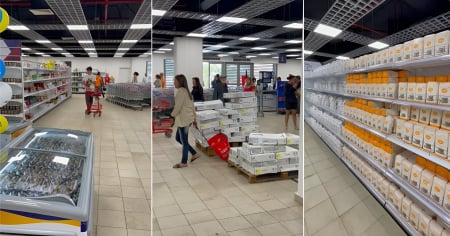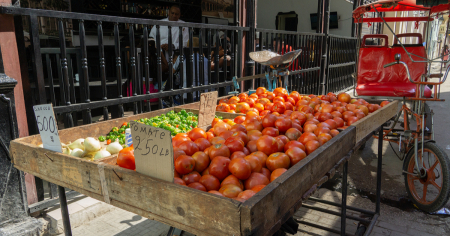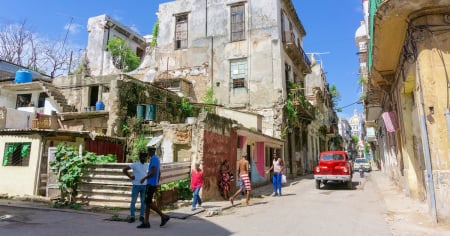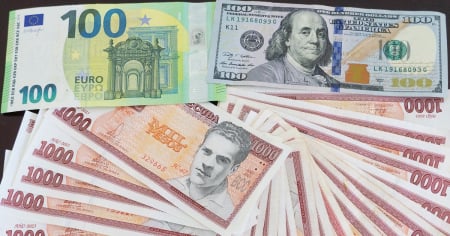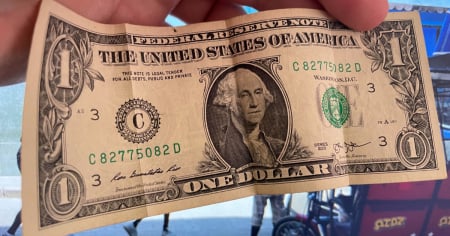The National Television stirred outrage among Cubans after previewing scenes from a report about the 3rd and 70 Dollar Supermarket in Miramar, claiming that its customers are "the general population."
This Wednesday, the government program Mesa Redonda will focus on the dollarization of the Cuban economy. They have prepared several journalistic materials, one of which is about the Supermarket at 3rd and 70th.
The journalist states that the customers of the establishment have various opinions about the service and that, "in addition to tourism, the general population also has access there."
That statement overlooks the fact that most Cubans receive their salaries in national currency, which prevents them from purchasing food and basic products in these dollarized markets, clearly designed to collect the dollars from those who receive remittances, have private businesses, or are foreign residents in Cuba.
Prices in these stores are significantly higher than in many businesses outside the country, further limiting access for the population and the interest of so-called "tourists."
The regime's attempt to normalize dollarization has been met with criticism from economists and Cuban citizens, who perceive in the official narrative an intention to conceal the economic crisis and the inequality caused by the exclusion of those without access to foreign currencies.
Many Cubans are eagerly awaiting this Wednesday's program to see how the regime justifies this reality that every day drives more people to suffer from food scarcity and extreme poverty.

Dollarization in Cuba: A Cyclical Problem
In December 2024, the regime approved a document that regulates the "partial dollarization of the economy". It was presented by Prime Minister Manuel Marrero Cruz during the fourth ordinary session of the National Assembly.
Marrero assured that the measure aims to reorganize key sectors while trying to control the impact of the informal currency market.
On January 3, 2025, the new Supermercado de 3ra y 70 opened in Havana, a store that only accepts cash in dollars or foreign cards. Its shelves were stocked with both national and imported products, which contrasts sharply with the shortages in stores that operate in Cuban pesos.
On January 5, 2025, the opening of the supermarket caused the price of the dollar to surge in the informal market. The increasing demand for foreign currency raised the exchange rate of the dollar to 340 Cuban pesos, further complicating the economy for those who depend on the CUP to survive in Cuba.
This week, CiberCuba revisited the establishment and the images show that it remains stocked, but with some empty shelves and only accessible to a minority of Cubans due to the high prices in dollars.
Frequently Asked Questions about the Partial Dollarization of the Cuban Economy
What is the dollar supermarket at 3rd and 70 in Havana?
The supermarket in dollars at 3rd and 70 in Havana is an establishment that only accepts cash payments in dollars or through cards linked to foreign currency accounts. It is stocked with both national and imported products, but its prices are unattainable for most Cubans, who do not receive their salaries in dollars.
How does partial dollarization affect the Cuban economy?
The partial dollarization of the Cuban economy increases social and economic inequality, as only those who have access to foreign currency can shop in exclusive stores. This measure also raises the exchange rate of the dollar in the informal market, further complicating the economy for those who rely on the Cuban peso.
Why does the Cuban regime defend the dollar stores?
The Cuban regime defends dollar stores as a necessary measure to control the flow of foreign currency and counter the illegal currency market. According to the government, these stores aim to capture the foreign currency circulating in the informal market to use it for the benefit of the population, although this narrative has been criticized for its impact on inequality.
What is the social impact of dollar stores in Cuba?
The dollar stores in Cuba have a strong social impact by increasing tensions and economic inequalities. The majority of Cubans do not have access to dollars, which limits their ability to purchase basic goods in these stores, exacerbating the economic and social crisis on the island.
Filed under:

